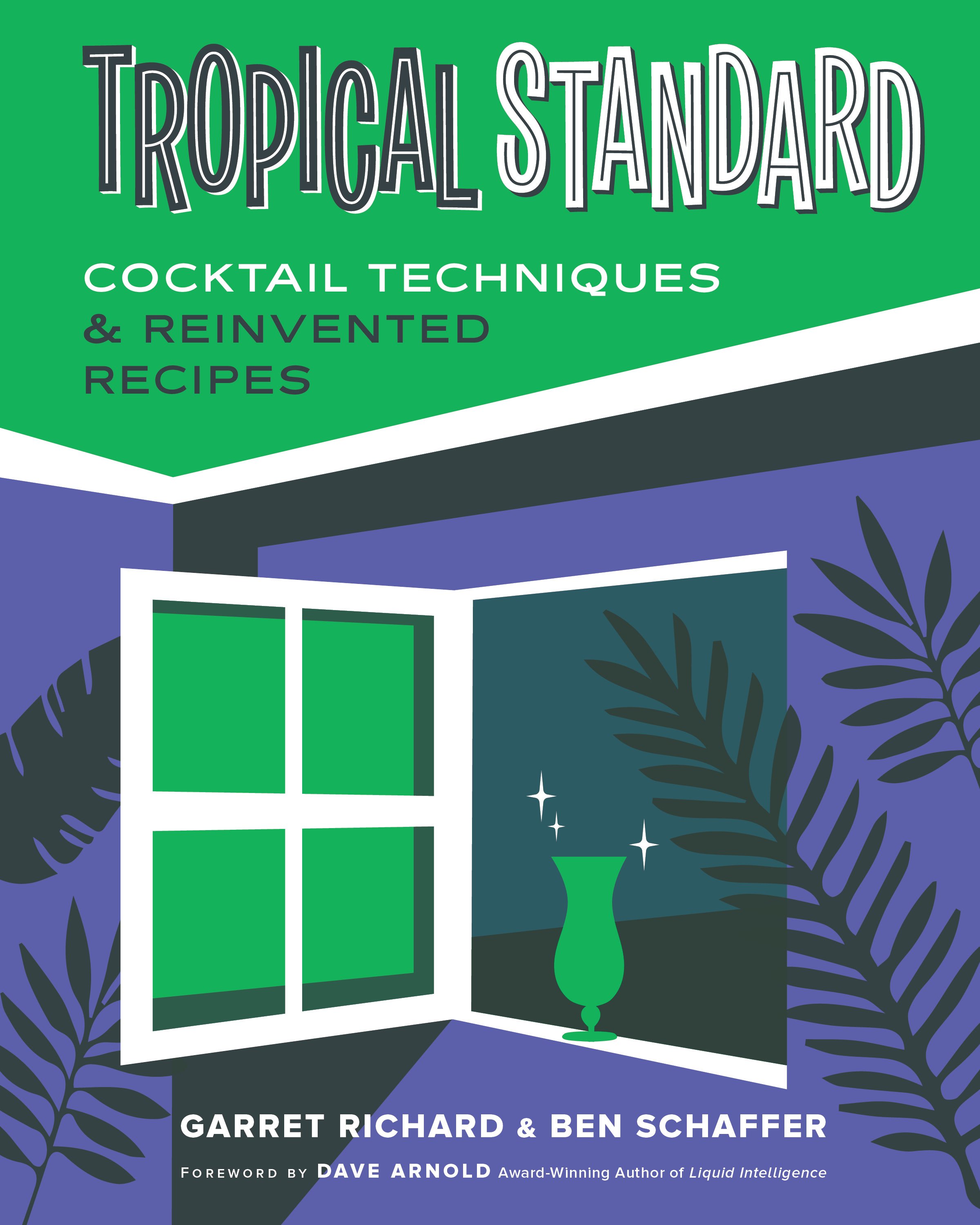Boozy Book Review: Tropical Standard
Tropical Standard cover
I know well enough not to judge a book by its cover, but in this case, I shouldn’t have judged it by its title either. “Tropical Standard” (published May 16, 2023, Countryman Press) sounded to me like a book of recipes citing specific brands of spirits and mixers for classic tropical cocktails like the Mai Tai and Zombie, and even the subtitle of “Cocktail Techniques and Reinvented Recipes” didn’t really clue me in as to its contents.
To be fair, to describe what’s in the book takes up a lot of words- my notes in preparation for this write-up were ridiculously long. The quickest way to go about it might be to describe the book as the science-forward techniques of Dave Arnold’s Liquid Intelligence applied mostly to the cocktails of Trader Vic and Donn Beach.
Co-author Garret Richard worked with Arnold at the New York bar Existing Conditions and from him and bar co-owner Don Lee learned a great number of techniques that he properly attributes throughout (Arnold wrote the book’s foreword). These include things like acid- adjusting (adding citric and malic acid to orange, grapefruit, and pineapple juices to bring them up to the acidity of lemon or lime), citrus clarification using wine fining agents, and adding xanthan gum to blended drinks as a stabilizer.
MaiTai photo credit Nico Schinco
While several recipes require these very specific ingredients, the drinks can be made without a refractometer or centrifuge or other expensive equipment. We’re instructed how to use these tools to get very exact results such as fruit syrups dialed in to specific brix levels (as you might want for a large bar program), but we are also given close-enough recipes of adding X grams of acid to Y grams of juice and sugar to get you in the zone when making drinks at home.
That said, they make a heck of a compelling argument for buying a $50 electric drink mixer to achieve ideal dilution rates. As a technique book, Tropical Standard teaches not just how to do things, but why to do things and for which specific styles of drinks. Simple improvements include shaking certain cocktails with two small ice cubes plus one large cube to try to hit a sweet spot of proper dilution and ideal texture from aeration; or merely adding a touch of salt to most recipes.
Garret Richard (L) Ben Schaffer (R) Photo by Nico Schinco
Richard is often problem solving to eliminate issues with one ingredient or an aspect of a drink such as flabby orange juice or rapid dilution, and then rebalancing the rest of the drink considering the changes. For example, in a Painkiller variation, “Acid adjusting allows a lower volume of juice to do more flavor work,” which in turn allows him to amplify the impact of the rum with a specific selection of high-proof and pungent brands, compliment the traditional nutmeg with Angostura bitters, and lighten the texture of the drink overall by flash blending it with the electric mixer. Fixing one problematic component allows for a chain of adjustments and a new spec.
While a beginner’s level cocktail book mostly concerns itself with the question of how much of each ingredient to put into different drinks to make them taste right, Tropical Standard starts its line of questioning in reverse: given the ingredients in a classic cocktail and knowing the ideal taste it could achieve, how do we get there by adjusting a cocktail’s initial water content, rate of dilution in the glass, texture, acidity, sweetness, alcohol percentage, carbonation strength, and the like?
Minoan photo credit Nico Schinco
For example, the choices we make in executing a basic Daiquiri made of lime juice, sugar, and rum are no longer limited to choosing the quantity of each ingredient, the type of sugar syrup, and the brand of rum in the drink. Options explored for the lime alone include standard lime juice, lime syrup, lime cordial, lime oleo saccharum, lime punch syrup, and clarified lime juice. These will alter the acidity/dilution/etc and then we can solve for the rest of the cocktail.
While one or another technique may be used to perfect a classic tropical drink, the techniques are ripe for export. What if our Daiquiri was a shot? What if we want it clear? Carbonated? Stirred? What if we weren’t confined to lime and used pineapple juice instead? The authors don’t offer these options as finished recipes, but after reading the book you’ll know what to do to get pretty close.
Tropical Standard is not a book of variations on classic tropical drinks, but an attempt to perfect each one according to its own nature. Some of the recipes in the book don’t employ any modern techniques but instead simply dial in specifics of preparation and selection of ingredients. So perhaps my confusion over the book’s title comes down to a word. It’s not about standardizing tropical drink recipes to a simple format, but instead raising classic tropical cocktails to meet a new and higher standard.
Photo credit for author photo:
Garret Richard (L) Ben Schaffer (R) Photo by Nico Schinco
Photo credits for others: Photo by Nico Schinco




